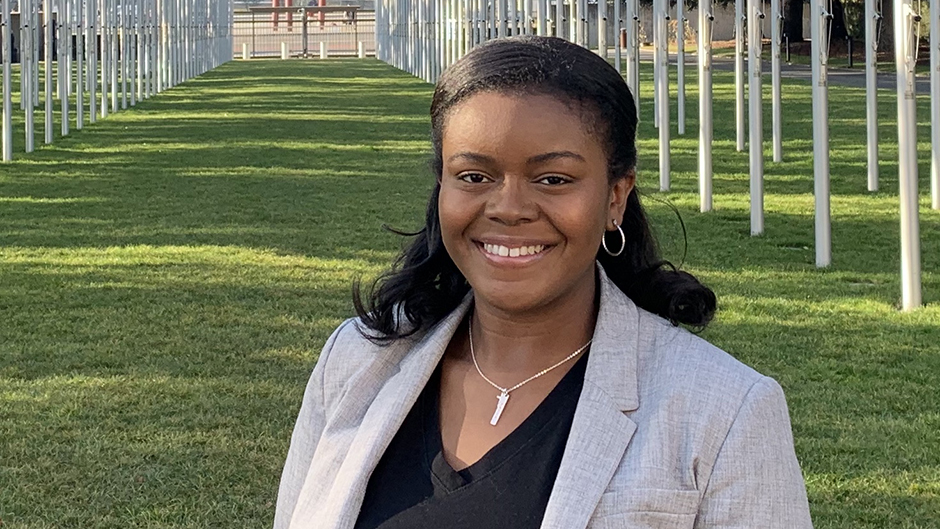As the daughter of a Maryland congressman and lawyer, she experienced law and admired leadership up close, having met President Bill Clinton and Barack Obama, but didn't picture herself following in her father's J.D. footsteps.
A degree in communications at the University of Pittsburgh, magna cum laude, was not opening the doors she had hoped, so she took a placeholder job while she calculated her next step.
"I spent a year at a public health nonprofit in D.C.," she says. "The CEO had his law degree, and he would tell me how versatile and useful the degree could be."
During her early informational searches, she tapped on Miami Law's website.
"When I was in elementary school, my dad hosted a yearly college fair, and I remember noticing a UM flyer featuring a beautiful picture of the campus and fountain in Lake Osceola. It always stood out to me, and it was what made me look at Miami years later when I started researching law schools," she said.
She was initially attracted to the entertainment law track but found a home as a HOPE fellow and was awarded a Squire Patton Boggs Public Policy fellow. She built on the leadership skills she had honed at Pitt, where she was the president of the Black Action Society and a peer facilitator for the Emerging Leaders Program.
At Miami Law, she participated in the Human Rights Clinic, where she worked on a case addressing the human rights violations experienced by female drug users in Estonia, and spoke about the work before a UN committee in Geneva. She also served as community relations chair for the Black Law Students Association.
As a third year, she served as the Staff Managing Editor of the Race & Social Justice Law Review and as a member of the Society of Bar & Gavel.
“Being a part of the Human Rights Clinic honed not only my oral and written advocacy skills,” she said, “but it opened my eyes to the wide-range of opportunities available to law students interested in public interest work.”
Wynn was the HOPE fellow at the Center for Reproductive Rights in New York City during her rising third-year summer, where she worked in the Human Rights Law Department to develop advocacy and policy materials that address maternal health disparities among women of color and access to reproductive technologies.
Post-graduation, Gabrielle is studying to take the Maryland bar exam and will waive into the D.C. bar in the fall, when she begins a one-year fellowship at the Washington Lawyers’ Committee for Civil Rights and Urban Affairs, a litigation, client and public policy advocacy, and public education organization that works to create legal, economic, and social equity.
“The diversity of opportunities available to law students at UM gave me the chance to try out different things and discover my interests,” Wynn said. “Once I focused on my interest in helping women from marginalized communities, UM provided a plethora of opportunities for me to gain experience necessary to be successful in my future endeavors as an attorney.”
More on Human Rights Law at Miami Law

